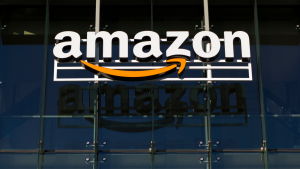It always seems to be Amazon’s way. When the world starts to write it off, the Seattle tech behemoth comes up with another money-making idea. It’s been that way since Jeff Bezos founded the company in 1994.
Just as insurance is Berkshire Hathaway’s (NYSE:BRK-B) golden goose, Amazon Web Services (AWS) is Amazon’s big profit generator. To ensure it stays this way, Amazon Chief Executive Officer (CEO) Andy Jassy, who ran AWS before Bezos stepped aside in July 2021, decided last week to replace AWS CEO Adam Selipsky with AWS veteran Matt Garman. Selipsky had previously taken over AWS from Jassy.
If Amazon is to remain a cash flow machine, Garman will have to transform AWS from a cloud provider to an artificial intelligence (AI) leader. If there’s one thing I’ve learned about Amazon, it is that it is more than capable of meeting the challenge.
Here’s why.
AWS Is About to Accelerate Its AI Endeavors

The good news for the newly-appointed AWS CEO is that AI requires considerable cloud infrastructure. Microsoft (NASDAQ:MSFT) said in April that the demand for cloud-based AI services exceeds supply despite the company spending $14 billion in capital expenditures in Q1 2024, nearly 80% higher than a year earlier.
The bad news is that Microsoft Azure and Google Cloud have done more with AI than AWS, leading to market share slippage. If not careful, these market share losses will turn from a trickle to a torrent. Garman was brought in to prevent this.
Jassy is making another big move in his first three years as CEO. This one could be his undoing if he doesn’t get it right. Forrester Research Principal Analyst Lee Sustar believes Garman’s strategic decisions taken in the second half of 2024 and into 2025 could shape the future of this very profitable division.
“AWS’ differentiation historically has been in infrastructure,” SDX Central executive editor Dan Meyer reported Susar’s comments. “Rather than compete in areas like enterprise software suites, it can double down on custom silicon GPUs as an Nvidia alternative. AWS could bring its €˜go build it’ cloud strategy to genAI to help customers home in on use cases that matter most rather than pushing AI everywhere.”
That makes sense. Amazon has always been strategic in its business decisions, opting for precision and quality over quantity.
Amazon Prime Cranks Up the Ad Revenue

Interestingly, back in October 2023, I said that Amazon’s advertising business could become even more important than Amazon Prime.
In my analysis at the time, Amazon had generated $38 billion in annual advertising revenue in 2022, 21% higher than a year earlier. More importantly, this was $2.5 billion higher than its subscription services revenue, which includes Prime. In 2020, subscription services revenue was $5.4 billion higher than its ad revenue. It was a complete flip in just 24 months.
Throughout 2023, its ad revenue jumped up to $47 billion, accounting for nearly 10% of the company’s total revenue. One major way it generates ad revenue is through Amazon Prime video. Unless subscribers pay $2.99 monthly to avoid them, the standard monthly subscription now includes a minimally invasive group of ads during streaming. Experts suggest the company could generate $3 billion annually from these ads.
Here’s the beauty of this advertising: unlike the other streamers, Prime Video is one of many benefits of the annual Prime subscription. So, unlike Disney+, Netflix (NASDAQ:NFLX) or one of the other significant streamers, customers might not be as miffed about ads suddenly appearing. I doubt consumers feel the same about the others who don’t provide free two-day shipping, etc.
The Bottom Line on Amazon Stock

Forgetting its massive e-commerce business and Whole Foods, Amazon continues growing three revenue streams: advertising, AWS, and AI. How they look today will pale in comparison to how they look tomorrow.
I don’t think Amazon shareholders need to worry about losing ground to other companies in either advertising or AWS.
It remains an excellent stock to own for the long haul.
On the date of publication, Will Ashworth did not have (either directly or indirectly) any positions in the securities mentioned in this article. The opinions expressed in this article are those of the writer, subject to the InvestorPlace.com Publishing Guidelines.
Will Ashworth has written about investments full-time since 2008. Publications where he’s appeared include InvestorPlace, The Motley Fool Canada, Investopedia, Kiplinger, and several others in both the U.S. and Canada. He particularly enjoys creating model portfolios that stand the test of time. He lives in Halifax, Nova Scotia.
